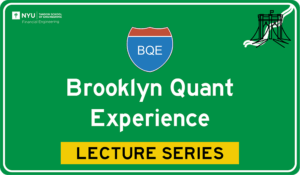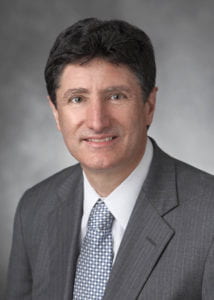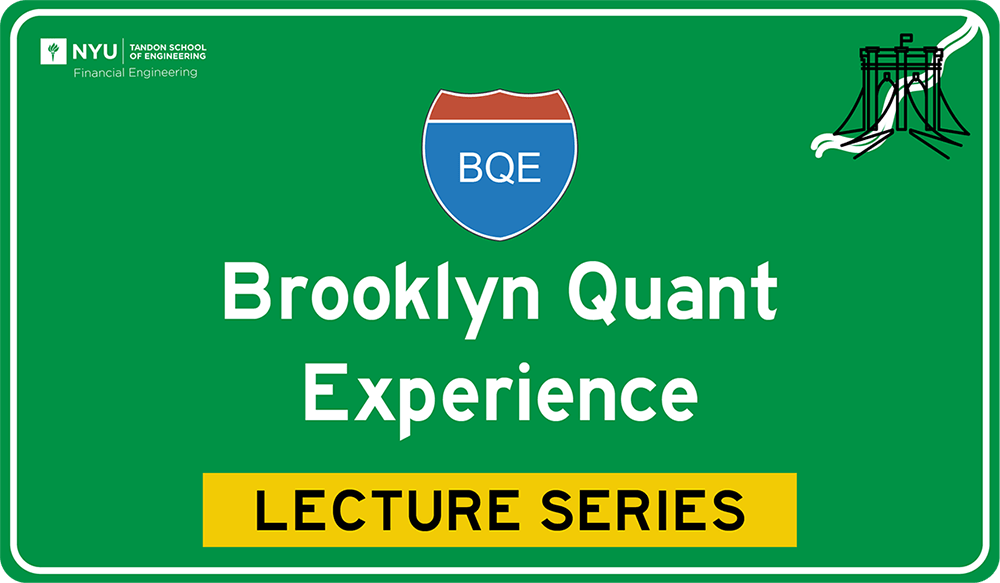 Dear All,
Dear All,
You are cordially invited to the Brooklyn Quant Experience Lecture Series (BQE) on Thursday, October 1st at 6 p.m. on Zoom.
*Please note a meeting password is required for this event.
Meeting ID: 925 3238 8440
Password: BQEPC
Pasquale Cirillo, Professor of Risk Management at the University of Nicosia, Cyprus, and NYU FRE Boot Camp Instructor, will give the following talk:
Title
From P to Q and Beyond, a Tale of Inequality
Abstract
We use tools from inequality studies, like the Lorenz curve and the Gini index, to study the relation between the market measure P and the risk-neutral measure Q, but we also deal with the share measure and the T-forward measure. This alternative approach to the change of measure operation is extremely useful to understand some profound and non-trivial connections among measures, and—in some cases— it can also simplify pricing problems. No preliminary knowledge of inequality measures will be assumed.
Bio
Pasquale Cirillo is a Professor of Risk Management at the University of Nicosia, Cyprus, where he is also a member of the Institute For the Future. He previously held positions at the Delft University of Technology (NL) and the University of Bern (CH). He has been a visiting scholar of NYU FRE, and one of the instructors of the FRE Summer boot camp. His research interests include quantitative risk management, extreme value theory, and urn models. He has published in top international journals and is currently writing a book on fat tails. Besides his academic career, Pasquale has also collaborated with international institutions and many top private companies and banks as a statistical consultant. His MOOCs in risk management have been attended by more than a hundred thousand students from all over the world. He is a proud amateur cook.

 Dr. Peter Carr has been chair of the finance and risk engineering department at NYU Tandon School of Engineering for the last four years. He also presently serves as a trustee for the National Museum of Mathematics and WorldQuant University. Previously, he had a 20-year career heading quant groups in finance. Prior to joining the financial industry, Dr. Carr was a finance professor at Cornell University, after obtaining his Ph.D. from UCLA in 1989. He has more than 90 publications in academic and industry-oriented journals and serves as an associate editor for eight journals related to mathematical finance. He was selected as Quant of the Year by Risk Magazine in 2003 and Financial Engineer of the Year by IAQF/Sungard in 2010.
Dr. Peter Carr has been chair of the finance and risk engineering department at NYU Tandon School of Engineering for the last four years. He also presently serves as a trustee for the National Museum of Mathematics and WorldQuant University. Previously, he had a 20-year career heading quant groups in finance. Prior to joining the financial industry, Dr. Carr was a finance professor at Cornell University, after obtaining his Ph.D. from UCLA in 1989. He has more than 90 publications in academic and industry-oriented journals and serves as an associate editor for eight journals related to mathematical finance. He was selected as Quant of the Year by Risk Magazine in 2003 and Financial Engineer of the Year by IAQF/Sungard in 2010. Dear All,
Dear All,